Alex Lang thought he was done with the pastorate for good.
On Sunday, Aug. 27, Lang bid farewell to the congregation at First Presbyterian Church in Arlington Heights, Illinois, where he’d served for a decade.
His final sermon done, Lang sat down and typed out some thoughts on why he left not only First Presbyterian but the pastorate altogether. Lang posted that essay a few days later on his website, thinking his few hundred regular readers might be interested.
He was partly right. His regular readers were interested. And so were about 350,000 of Lang’s colleagues.
Lang’s essay, entitled “Why I Left the Church,” went viral — and prompted a national conversation among clergy about the pressures of the profession and how they talk about those pressures. Over coffee and in Facebook posts and denomination offices, Lang’s essay became the topic du jour for clergy around the country. Some resonated with his concerns, while others saw his leaving as a lack of faith.
Your tax-deductible gift helps our journalists report the truth and hold Christian leaders and organizations accountable. Give a gift of $30 or more to The Roys Report this month, and you will receive a copy of “Baptistland: A Memoir of Abuse, Betrayal, and Transformation” by Christa Brown. To donate, click here.
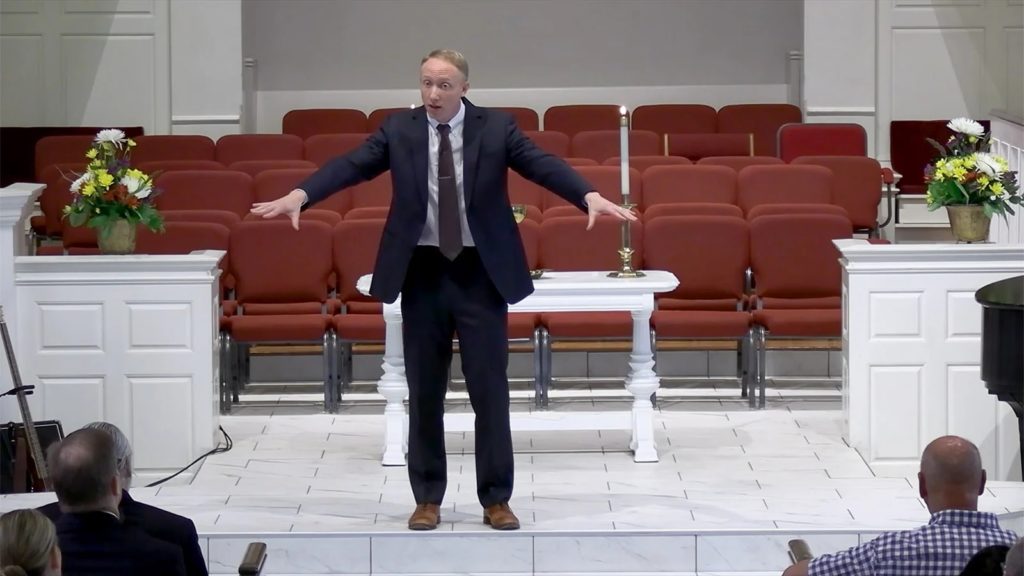
“I’ve done more than 50 articles,” said the 43-year-old Lang during an interview at his home outside of Chicago. “Usually nobody cares.”
His more recent essay became a blank slate for people to write their own experiences on. Many of those experiences are difficult — as pastors have become burnt out caring for people’s souls amid the decline of organized religion known as the “Great Dechurching” and the aftermath of the COVID-19 pandemic.
“Alex raised issues that are relevant and resonated with clergy serving congregations and other institutions,” said Rev. Craig Howard, executive presbyter of the Presbytery of Chicago, which First Presbyterian is a part of. “These issues include isolation, organizational calcification, burnout, and bullying.”
After reading Lang’s essay, Howard said he emailed other clergy in the Presbyterian Church (USA) in the Chicago area, inviting them to meet up and talk. That meeting, he said, led local leaders to work on some resources to help pastors with spiritual care and mental health issues.
In his essay, Lang talked about the burden of knowing his congregation’s secrets and their sorrows — which became, at times, more than he could bear.
“What you don’t realize is that, over time, the accumulation of all that knowledge starts to weigh you down,” he wrote. “Your mind is a repository for all sorts of secrets and, if you’re human, you feel sympathy and empathy for their suffering.”
That portion of Lang’s essay resonated with the Rev. Devyn Chambers Johnson, co-pastor of Covenant Congregational Church in North Easton, Massachusetts. She said it’s hard for congregation members or those outside the church to understand that part of a pastor’s life.
While helping professionals like therapists or counselors also support people in crises, they don’t do so on the scale that a pastor does, something she said her husband and co-pastor, Ryan, helped put into perspective.
“Therapists only have a few dozen people to care for,” she recalled her husband saying. “At church, you have hundreds of people that you help with their hurts and griefs. That is something people don’t realize.”
Add to that the logistics of the pastorate — preparing sermons, raising funds, working with committees and dealing with all the small details needed to keep a congregation running — and it can be a lot.
Chambers Johnson said she felt more prepared for the burdens of the pastorate because her father was a pastor — so she knew what she was getting into. She also said caring for people in her church is a privilege — that some of the most holy moments of her life came when she was present with people in grief or crisis.
“That’s the part of the job I would not trade for everything,” she said.
Scott Thumma, director of the Hartford Center for Religion Research, said adapting to the COVID-19 pandemic — and responding to the Black Lives Matter movement, political polarization and the reality that congregations are shrinking and aging — has all taken a toll on pastors.
Thumma, who has been studying the impact of the pandemic, said a growing number of pastors have begun to think about leaving the pastorate.
“It’s absolutely clear that people are stressed and tired and worn out,” he said. “And they think about quitting. But they are not giving up.”
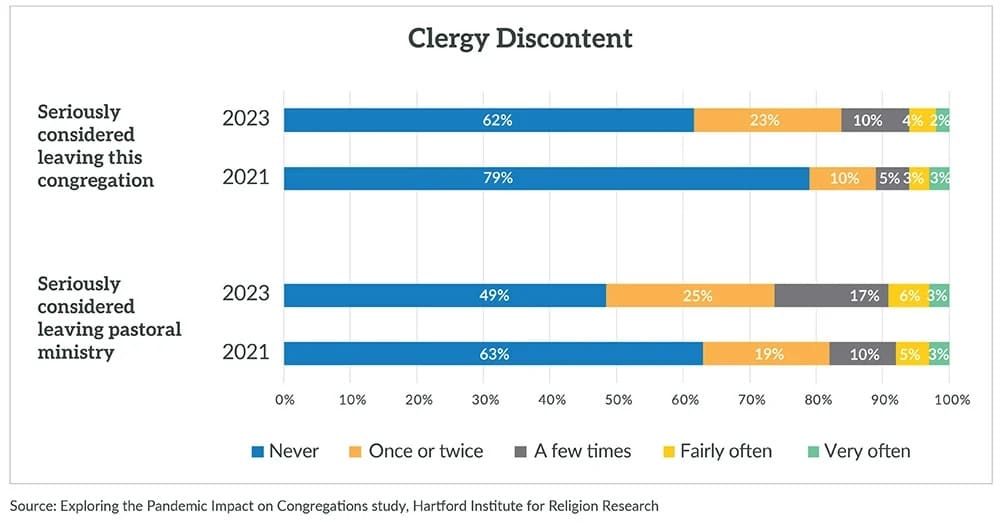
Thumma said only 3% of clergy think about leaving all the time — a percentage that hasn’t changed much in recent years. And he said that overall, clergy have a fairly positive outlook on life, according to a recent study done by Hartford.
Nathan Parker, pastor of Woodmont Baptist Church in Nashville, said he’d had mixed reactions to Lang’s piece, which he said circulated widely among his Southern Baptist colleagues. For his part, he said he had more sympathy for Lang’s congregation than for Lang himself.
Parker worried Lang hadn’t relied enough on God — or that he hadn’t helped his people rely more on God and less on themselves.
“I don’t want anyone to feel sorry for me,” said Parker, adding that without God’s help, the job of a pastor is impossible.
The Rev. Kerri Parker, executive director of the Wisconsin Council of Churches, said Lang’s essay had led to some helpful conversations about the struggles clergy face. Some of those clergy, she said, have a complicated relationship with the church.
“If they were on a dating app with the church, they would say they are not a thing,” she said. “But they are not, ‘not a thing.’ But they would not necessarily tell someone they are fully an item.”
She said clergy are tempted to take everything on themselves — and don’t rely on either God or their colleagues. That’s despite most clergy taking ordination vows that remind them that everything does not depend on them.
Parker said that no amount of self-care or great planning and new ideas can overcome the challenges churches face.
“We are used to holding everything together because we don’t know what else to do,” she said. “When it all goes to heck, it just goes.”
She said Lang’s essay was a gut check for pastors. Parker added that a colleague put it this way: “When we try and bear the burdens of ministry without turning them over to God, we are doomed to failure.”
For Lang, things are more complicated. He admits to being a perfectionist — memorizing his sermons, trying to make everything at church run perfectly — and trying to help his congregation follow the teachings of Jesus in the modern world.
He also says he had doubts about many of the traditional teachings of the Christian faith — such as the resurrection of Jesus or the virgin birth — and whether Jesus was the only way to find salvation. He said that he thought by modernizing theology and speaking to people in an engaging, down-to-earth manner, he could help draw people outside the church into the faith.
That didn’t work the way he hoped. Even those who were interested in his ideas found it hard to connect to a traditional congregation. COVID-19 also wrecked many of the plans the church had for the future.
Lang said he also recognized that after a decade, the church needed new leadership.
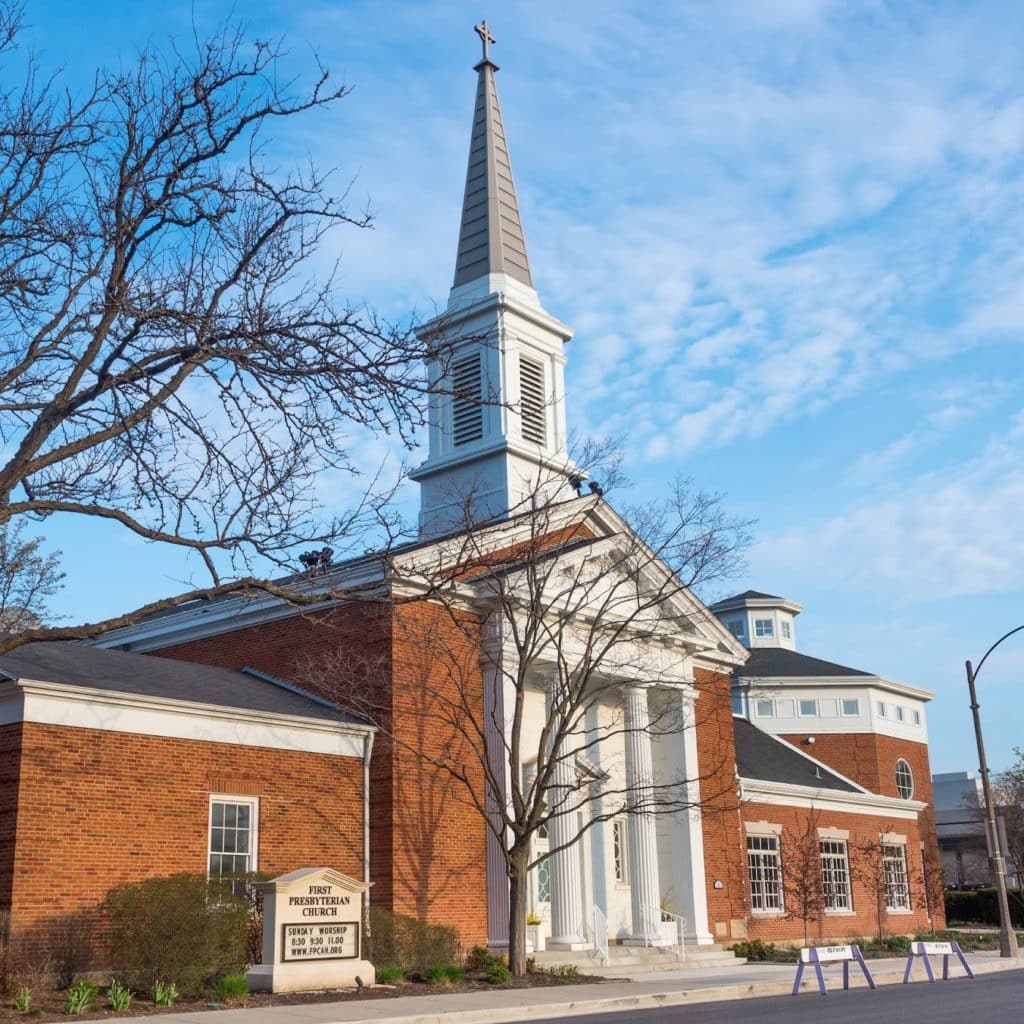
“They need someone else with new ideas to take them in a new direction,” he said.
Still, leaving was hard, something that was evident in his last sermon, which was filled with laughter and tears and a sense of genuine affection between a pastor and his flock.
Lang joked about his own failings and paid tribute to congregation members who went above and beyond the call of duty. He also thanked them for taking a chance on him as a young pastor.
Perhaps the most moving moment of the sermon came as Lang described the fraught relationship he’d had with his mother growing up. He said she was often critical, telling him he was not good enough, while Lang admitted judging his mother’s shortcomings.
While in college, Lang said one of his mentors challenged him to live out the teachings of Jesus — and to love her even though he saw her as an enemy. That changed everything, he said, recounting the story with tears in his eyes.
“If you embrace Jesus’ teaching — and that kind of unconditional love — you can revolutionize the world,” he said.
When he left, Lang’s congregation gave him a piece of Kintsugi art — made from broken pottery that had been mended with gold. That kind of pottery was a metaphor for his life, he said, that despite the struggles and his own failings, there is still beauty.
He said he remains skeptical about the future of institutional Christianity. But he is hopeful about the congregation he left behind.
In his last sermon, Lang urged the congregation to stay committed to the work they have been doing, despite the change in leadership. The church is always bigger than the pastor, he told them.
Then he gave thanks.
“You all have conveyed God’s unconditional love to me, more profoundly than just about anything in my life,” he said.
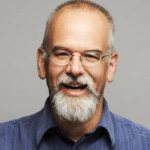 Bob Smietana is a national reporter for Religion News Service.
Bob Smietana is a national reporter for Religion News Service.




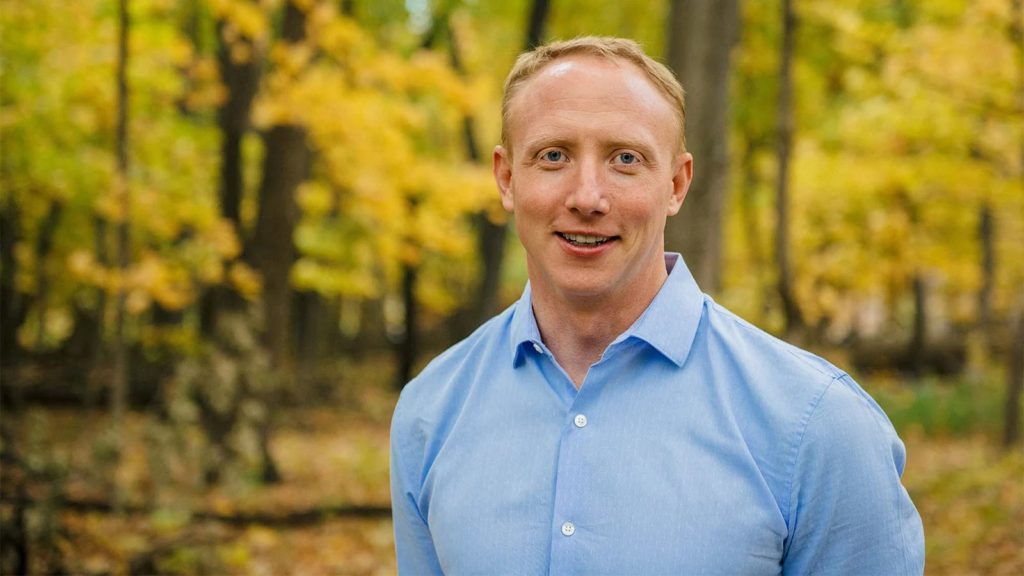


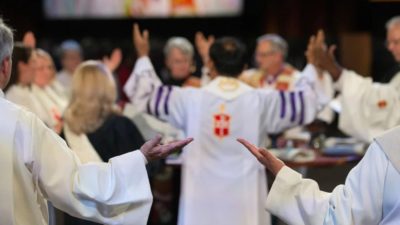
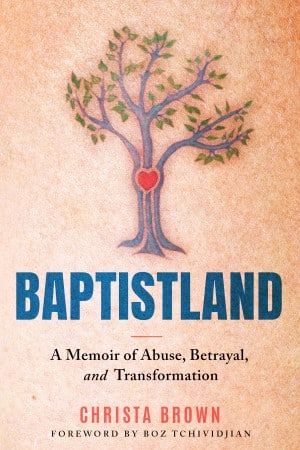
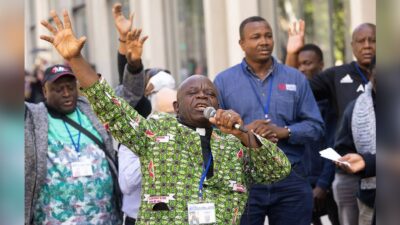
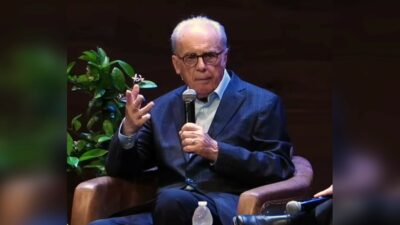
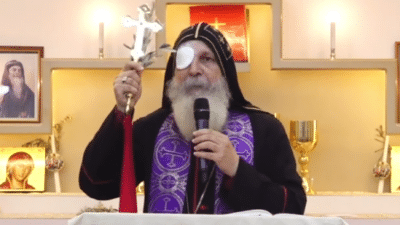









28 Responses
Lang wrote, “I have no problem dismantling the traditional Christian belief system in service of logic and reason”. It brought to mind the words of the ghostly clergyman in chapter five of C. S. Lewis’s “The Great Divorce”: “When the doctrine of the Resurrection ceased to commend itself to the critical faculties which God had given me, I openly rejected it. I preached my famous sermon…”
Smietana notes that Lang “says he had doubts about many of the traditional teachings of the Christian faith — such as the resurrection of Jesus or the virgin birth — and whether Jesus was the only way to find salvation.” I suspected that the phrase “had doubts” actually meant “disbelieved,” so I looked up some of Lang’s old sermons. As it turns out, Lang does not, in fact, believe that Jesus rose from the dead. Anyone can confirm that by listening to or reading his sermon “The Third Day” (March 12, 2023), at https://firstpresah.org/sermon/the-third-day/.
I thank God that Lang has left the ministry. Unbelievers in pulpits do immeasurable harm.
Meanwhile, it remains the case that the eternal Son of God was born of a virgin, died for sinners, was resurrected from the dead, and will return in judgment and vindication to establish his kingdom. There is salvation in no one else. Believe in the Lord Jesus Christ, and you will be saved.
Amen to everything you said.
Paul:
Well said! I would add John 14:6:
“I am the way, the truth, and the life. No one comes to the father except through me.”
Also, Acts 4:12:
“There is no salvation by anyone else, for there is no other name under heaven given among people by which we must be saved.”
I also thank God that Lang has left the ministry. I question how he ever got there in the first place?
Marty, Paul, Cynthia,
Did you read Lang’s essay? It seems like you are happily celebrating because you “cracked the case” and figured out Lang’s not an orthodox Christian, but that has little to do with the points of his essay. Your main argument is an “ad hominem” attack rather that a careful rebuttal. Lang could be a convinced atheist at this point and his essay would still be valid and thought-provoking.
As long as there are Paul, Martys and Cynthias in the church those in the process of becoming unbelievers will go faster.
We should never assume that those who leave the church and/or the faith were never ‘true christians’ in the first place. This is the comfortable Calvinism that many embrace that they assume to be ‘Biblical’.
Many of those who leave cite many negative experiences in the church and tough questions that they were shamed for asking.
One of the jobs of Christians should be to lovingly ans wisely counsel those struggling whether they be clergy of congregation members. Flesh and blood people should know how to do this.
Paul, thank you for writing this. Since Lang does not preach Christ, I disagree with the author presenting Mr. Lang as a typical, stressed Christian pastor of a Christian congregation.
That this pastor Lang has left the ministry can only be a good thing.
In his sermon “The third day” he preaches that he does not believe that Jesus body was removed from the cross and placed in a tomb” He says this was rare and would not be done for a poor man from Galilee. He also casts doubt that Jesus was resurrected in bodily form. He says it could have been Jesus appearing in a ghostly form or it could have been a vision of Jesus.
Readers can decide for themselves whether they want to listen to the sermon or not to discern whether he is or was ever good for the ministry in the first place.
Well at first I felt badly for this man, but then I get to this little gem: “He also says he had doubts about many of the traditional teachings of the Christian faith — such as the resurrection of Jesus or the virgin birth — and whether Jesus was the only way to find salvation.” He left the pastorate long long ago if this represents his faith(or lack thereof). In the end, though, this is a very good story as there is one less wolf in sheep’s clothing. I do wonder though-why does this site seem to elevate those who reject the faith, once for all delivered to the saints? It’s hard to take things seriously when you have stories like this. This article one would expect to see in the New Republic by a Sojourners writer!
Yes, good riddance from the pastorate to this lost false prophet, who in his heretical beliefs sadly represents par for the course in the PC (USA) and other mainline denominations. May he come to know the true Jesus, the Risen King of Kings and Lord of Lords, who alone can save him eternally.
And, your analysis about this article seeming to be written by a Sojourners-type writer is correct. From Smietana’s own website in the “About Me” section: “Most notably, he has served religion writer [sic] at The Tennessean, and contributor to Sojourners [sic] USA Today and The Washington Post.” From this sympathetic article and some of Smietana’s other work, I can’t help but wonder where he stands regarding some of the heresies espoused by Lang.
This article would indeed seem more at home on a liberal news outlet given to featuring such bogus pastors in a noble light.
I don’t subscribe to this kind of guilt by association. I’ve written for the Federalist. Does that make me a right-winger? Bob is a top-notch reporter. And even if he had a bias, he’s professional enough to report fairly.
It is the content of this and some other articles by Smietana that raised questions for me about his beliefs, not guilt by association. Someone may report 100% accurately, but which topics are covered, what information is presented, and how it is conveyed does say something about the reporter.
That Marty’s “Sojourners writer” apparent conjecture turned out to be true is interesting. Of course writing for or being part of a certain media outlet does not necessarily mean anything about a given individual, but it shouldn’t be controversial to acknowledge that media outlets do generally have a focus in what they cover and that they promote certain points of view over others, while their leaders and regular contributors often share similar opinions, beliefs, political leanings, and world views.
I read Lang’s essay about a week ago, and I thought it was excellent.
It confirmed what I’ve thought for a couple years now: churches should have carefully written job descriptions and expectations for their pastors and be wary not to expect too much of them.
What DOES a congregation expect from a pastor? How much time and training do those expectations require? In my opinion, Lang was expected to do entirely too much. This has nothing to do with “relying of God” (which, in my opinion, is usually used as a thought-terminating cliche) but the very real limitations of human beings.
For example, as I’ve gotten to know more about counseling, I would probably write that out of a pastor’s job description and move it entirely out of house…unless the pastor has a counseling degree and accreditation and opens up for a specific number of hours a week. I think it’s entirely appropriate for a pastor to say, “Sorry, I don’t do counseling but here are some referrals.”
I hope we embrace the limitations of pastors and share the burden of life among a growing number of qualified people.
Oh the thoughts I have.
First of all, to those of you who are calling names, Lang does NOT qualify as “a wolf in sheep’s clothing.” He was very open and honest about his doubts and tried to deceive no one. Those woolly wolves are actually deceivers with agendas of feeding on sheep. Lang was more Christ-like in his unbelief than are people who are calling him names in the name of “defending the faith.” What was it Jesus said, something about “knowing you are disciples because of your *love*?
Second, those who are saying, Well, he just didn’t rely on God enough — is every crisis in a man’s life to be explained away by judging his reliance (or lack thereof) on God? In dealing with mental health issues and great grief, I can’t tell you how many times God did NOT… tell me that my faith in Him was lacking. We burn out, we get depressed, we have crises, because we live in a fallen world, and these things come on the righteous and the unrighteous alike. This man had an almost unbearable workload on him, and handled it with grace for a decade. When he stepped down, he handled that with grace as well — no shouting or name-calling nor accusations. Whatever you think of his expressed beliefs, I will tell you, the crisis was not over a lack of faith.
To be continued…
Anyone who holds the office of pastor and who misleads the flock is a wolf in sheep’s clothing according to Jude. Scripture has damned him, not us. This site is supposed to restore the church and stand for truth, but for some odd reason it attracts those who reject Biblical truth.
Lisa:
Your words:
“Lang was more Christ-like in his unbelief than are people who are calling him names in the name of “defending the faith.” What was it Jesus said, something about “knowing you are disciples because of your *love*?”
The deception of Lang involves him calling himself a “pastor” for a decade when, in reality, he was simply a secular speaker. There is a calling to the ministry that he apparently did not have. It is not “calling names” to speak the truth.
So, no, you can have an emotional reaction, but at the end of the day, it is important to think through what Jesus himself said: Speak the truth, or don’t speak at all. Jesus viewed himself as the shepherd. Following in his footsteps does not entail pretending to speak in his name when you don’t even believe what he taught.
Third, Paul, I will heartily agree with you that most pastors do NOT need to be counseling. They tend to have a limited understanding of issues that bring people through that door, and often have nothing better to offer a counselee than to say, pray more and read your Bible more. Generally not something people aren’t already doing!
They tend to be unaware of their limitations and can actually do more harm than good when they try to counsel.
Pastors would absolutely do well to have a ready list of professional referrals for people seeking help in that area!
In smaller churches the pastor is the staff. I don’t know if the pressures caused him to question his faith, or questioning his faith led to the place he found himself in. We live by faith in all the ways that matter, and apart from a living faith, church becomes something less for everyone. My hope is that it was something real from God that moved him to become a pastor, and that he would know that again, and the joy and peace in that, wherever his path leads next.
Amen to that. Presumably he did start out well.
While I disagree with this pastor’s theology (and his assertion that while other pastors are black and white thinkers, HE has nuance), I also don’t think it was hard for him simply because “he didn’t trust God enough.” His essay was long and there were many different strands in it. I am saddened by the lack of charity in some of the comments here. I would hope that we would be able to disagree with grace.
Pastor Lang is part of the PCUSA which is a very theologically liberal denomination.
In the last 60 years the PCUSA has gone from 6 million to about 1 million followers today.
I would quit too, if I was part of that denomination.
I’m sure that he was eminently qualified according to the educational requirements of most mainline denominations. No one seems to want to talk about the sheer numbers of unsaved individuals, pastoring churches, and how they remained there. As someone who has had a front row seat as my denomination slides into the abyss on the shoulders of unqualified, pastors protected from scrutiny or accountability by hierarchy and secular structures superimposed on the church, I believe that, maybe this should be the discussion the the article spurs.
He’s just saying what our theologically orthodox pastors are thinking.
But, to be fair, anathematizing someone after they leave is a super, super evangelical move, so I would expect no less in the comments.
A Pastor writes an essay about leaving the ministry and the critics have to be critical. How many of the negative commenters here are or have been pastors? And to those that know he is not a real Pastor or a liberal, how do you know his heart-are you God? Your mean and critical spirit shines through your comments. Maybe it was because of people like “you” that is ministry years were so difficult?
Tom:
This is for you, so that you will understand why I am being “critical” of this “pastor.” He himself has stated that he does not believe in the Virgin Birth or that Jesus even rose from the dead. He, therefore, has disqualified himself from calling himself a Christian, and he most definitely is not qualified to be a pastor in Christ’s church. He is self-condemned.
1 John 2: 18-23:
“Dear children, this is the last hour; and as you have heard that the antichrist is coming, even now many antichrists have come. This is how we know it is the last hour. 19 They went out from us, but they did not really belong to us. For if they had belonged to us, they would have remained with us; but their going showed that none of them belonged to us.
20 But you have an anointing from the Holy One, and all of you know the truth. 21 I do not write to you because you do not know the truth, but because you do know it and because no lie comes from the truth. 22 Who is the liar? It is whoever denies that Jesus is the Christ. Such a person is the antichrist—denying the Father and the Son. 23 No one who denies the Son has the Father; whoever acknowledges the Son has the Father also.”
Perhaps I should respond to some of the questions raised. Mr. Konkol, yes, I did read Lang’s essay, twice. And I read Smietana’s article. Then I listened to three of Lang’s sermons. Mr. Parker, you wondered if any of the critical commenters were pastors. Yes, I pastored churches for 14 years following 8 years with Wycliffe Bible Translators. I know the heartache of ministry, and bear too many scars to jest at pastoral wounds. But I also know that by God’s grace it is possible to serve, even in a despairingly fruitless ministry, without betraying the faith once delivered to the saints, or trampling underfoot the Son of God.
Mr. Gunderson, you mentioned that Lang was just saying what our theologically orthodox pastors are thinking. I’m not sure how you know what such pastors are thinking, but speaking only for myself, I do in fact believe that Jesus rose from the dead, and is Lord of heaven and earth, and that I will stand before him some day. If I were a better man this would give me nothing but purest comfort. But being who I am, some dread remains. I will have to give an account for every careless word spoken (Matthew 12:36), and, though he loves me, he has promised to judge pastors like me with greater strictness (James 3:1).
May God have mercy on us all.
Paul-I still say it is not your job or anyone else to judge Rev. Lang.
I think it’s sad that some people feel comfortable using a pastor they don’t know as a punching bag for their judgmental opinions. Having left the ministry after only three years, I can feel some of his pain. Of the many men who entered the ministry from our small Bible college about the same time I did in 1977, only a couple stayed in more than a few years. We were ill-prepared to deal with the very things this pastor talks about. And we were all ministering in “orthodox”, “Bible-believing” churches. Makes me wonder whether some of the orthodox ever experienced a new birth since so many acted like their heterodox peers.